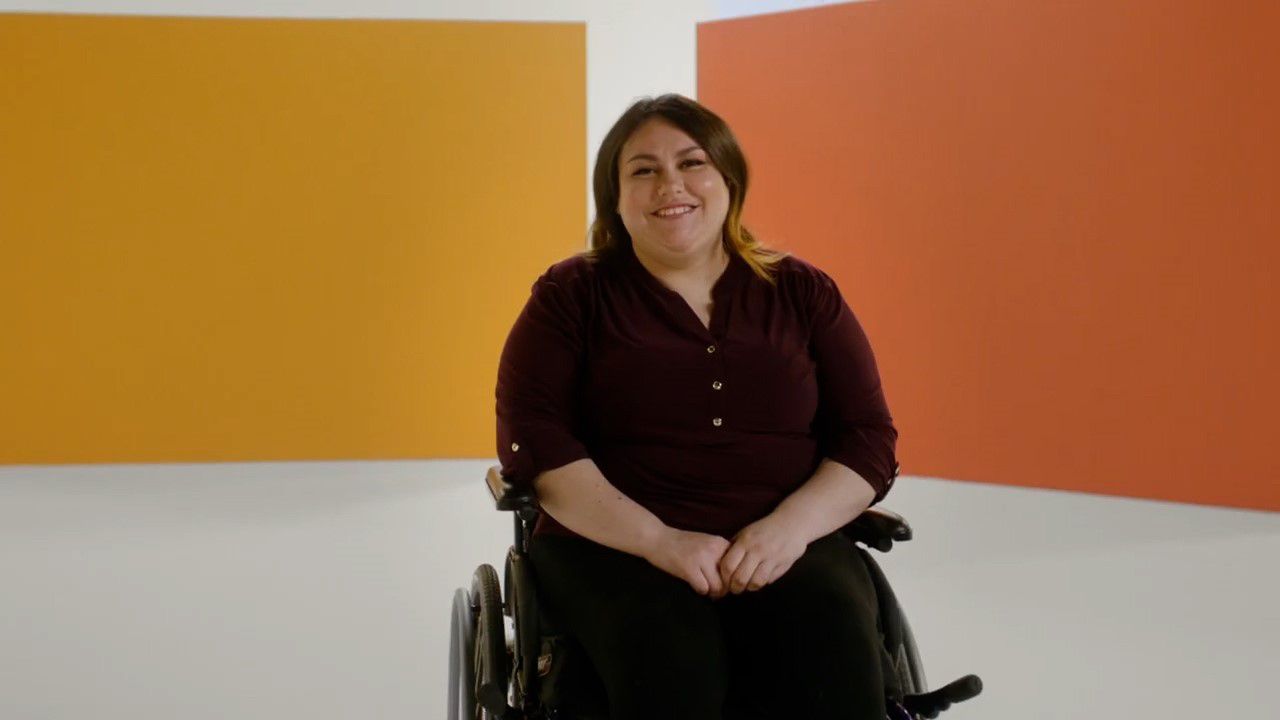LOS ANGELES — Ever since she was a child, Betty Partida has loved to draw.
“Scooby Doo is my favorite,” she said, showing off one of her drawings.
Art, she said, helps keep her hands and her mind busy during the day. But when she’s not drawing on paper, she’s drawing on her own experience to help her advocate for people living with disabilities.
Partida, who has cerebral palsy, is one of nearly a dozen people who appear in a new Easterseals campaign called “D1$@B1L*tY is Not a Dirty Word,” which was recently rolled out as part of Disability Pride Month. She was thrilled to be included and lend her voice — in English and in Spanish — to a community that she says needs to be heard.
“I would like to encourage people that have a disability to speak up for themselves because they shouldn't be shy," she said.
According to the CDC, a quarter of all U.S. residents have a disability. That’s more than 61 million people, nearly 5.5 million of them in Southern California alone. Kimberly Cohn, chief marketing communications officer of Easterseals Southern California, said this campaign isn’t about awareness but a deeper understanding.
“You know, people with disabilities are proud of who they are, just like everyone else,” she said. “And we're really trying to get over the stigma of people being afraid to be proud and out about their disability.”
There has been progress, she said since the passage of the Americans with Disabilities Act in 1990, which protects people with disabilities from discrimination. But the shifts have been slow and small, despite a widespread focus on diversity, equity and inclusion.
“With all the talk about DEI efforts over the past few years, disability somehow still remains left out of that conversation,” Cohn explained.

Her hope for the new PSA campaign is that people will stop feeling so uncomfortable around both the topic of disabilities and the people who have them.
“You know, there's a saying out there like, stop being weird,” she said. “So we need everybody to stop being weird.”
Although this is her first time appearing in a PSA, Partida is no stranger to advocacy. She is the vice president of Our Voices Matter, and in March, travelled to Sacramento to speak out against a proposed funding delay for disability services.
She admits she wasn’t always proud. When she was young, she said she heard her father laugh at another disabled child.
“And when he laughed at that little boy, it felt like he was laughing at me," she said.
It’s been a long road from there to being a spokesperson for Disability Pride. But proud, she said, is exactly what she is.
“I wouldn't change my disability for nothing in the world because if I didn't have the disability, I wouldn't be the person that I am today,” she said.
A person with a voice, a passion and a purpose.



